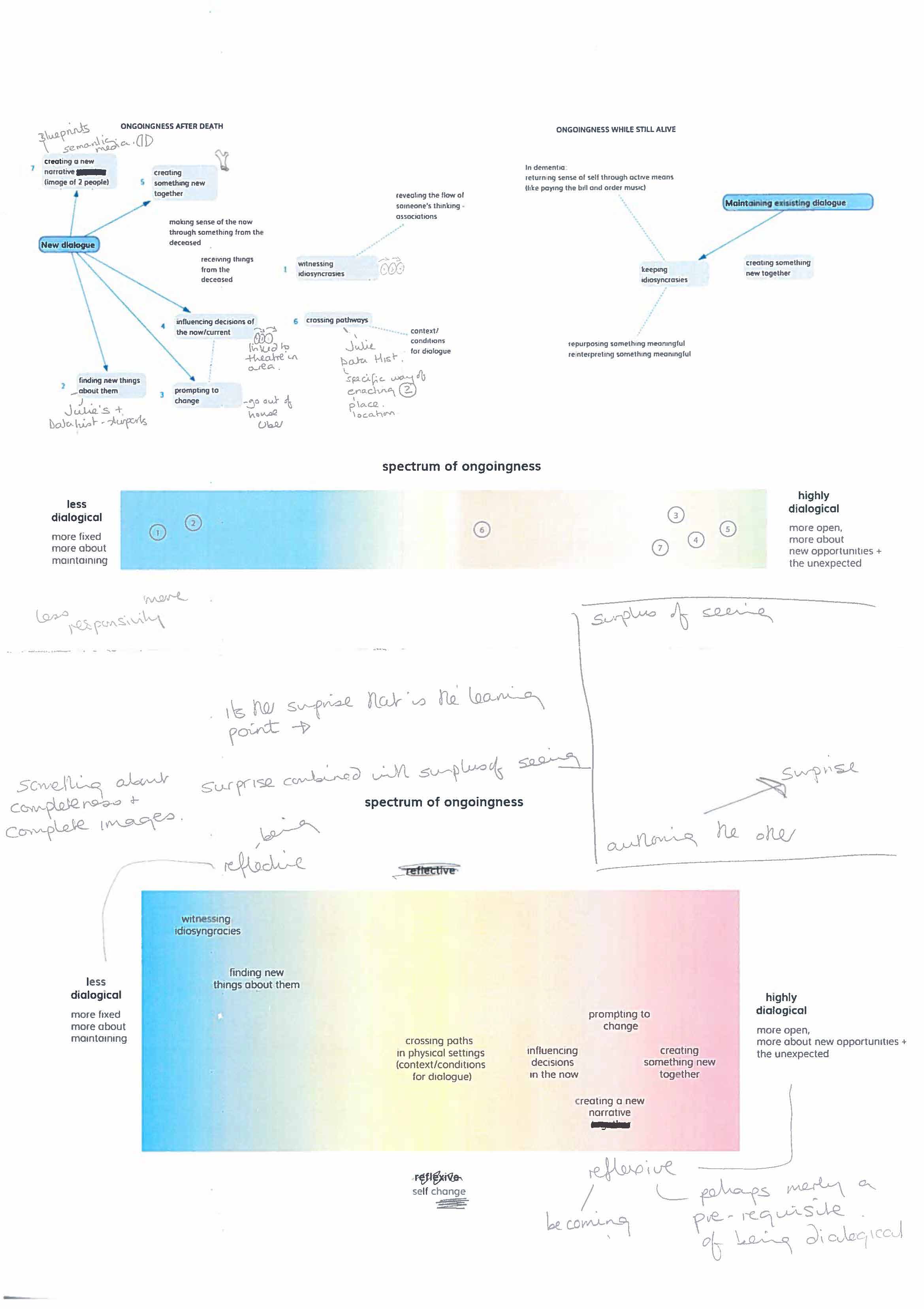We have been working on a spectrum of ongoingness – drawing from ideas that we’ve all had in group meetings and beyond as a way to aim to see an overarching conceptualisation of the notion of ongoingness. One of the main points we discussed was whether the ideas that are emerging in our project are dialogical (read Wright and McCarthy) or not – also how reflective or reflexive they are. The debate on reflexivity is rich and nuanced, and there are different ways of looking at it. We refer here to Paul Hibbert's definition that reflection achieves some learning but the learner is the "same person” afterwards - reflexivity achieves learning but also leaves the learner changed as a result (read more). So (very crudely!) we could say that reflexivity is reflection + self-change.
We contacted Pete Wright and John McCarthy to discuss our thinking. Our conversation focused on how the "surplus of seeing” of the other (see more on Bakhtin) would play out in terms of a dialogical encounter between self and a deceased other, or to-be-deceased self and other.
Does biological death or death of self represent the final loss of all potential because we can no longer enter into dialogical encounters?
Or is that the point of ongoingness to help others continue to find new ways of seeing surplus in the self (e.g. in me) of creating me?
Their input has been hugely insightful and useful. We are now weaving all the threads together and developing further our thinking on what the spectrum of ongoingness looks like.
Written by Nantia
We contacted Pete Wright and John McCarthy to discuss our thinking. Our conversation focused on how the "surplus of seeing” of the other (see more on Bakhtin) would play out in terms of a dialogical encounter between self and a deceased other, or to-be-deceased self and other.
Does biological death or death of self represent the final loss of all potential because we can no longer enter into dialogical encounters?
Or is that the point of ongoingness to help others continue to find new ways of seeing surplus in the self (e.g. in me) of creating me?
Their input has been hugely insightful and useful. We are now weaving all the threads together and developing further our thinking on what the spectrum of ongoingness looks like.
Written by Nantia

<
